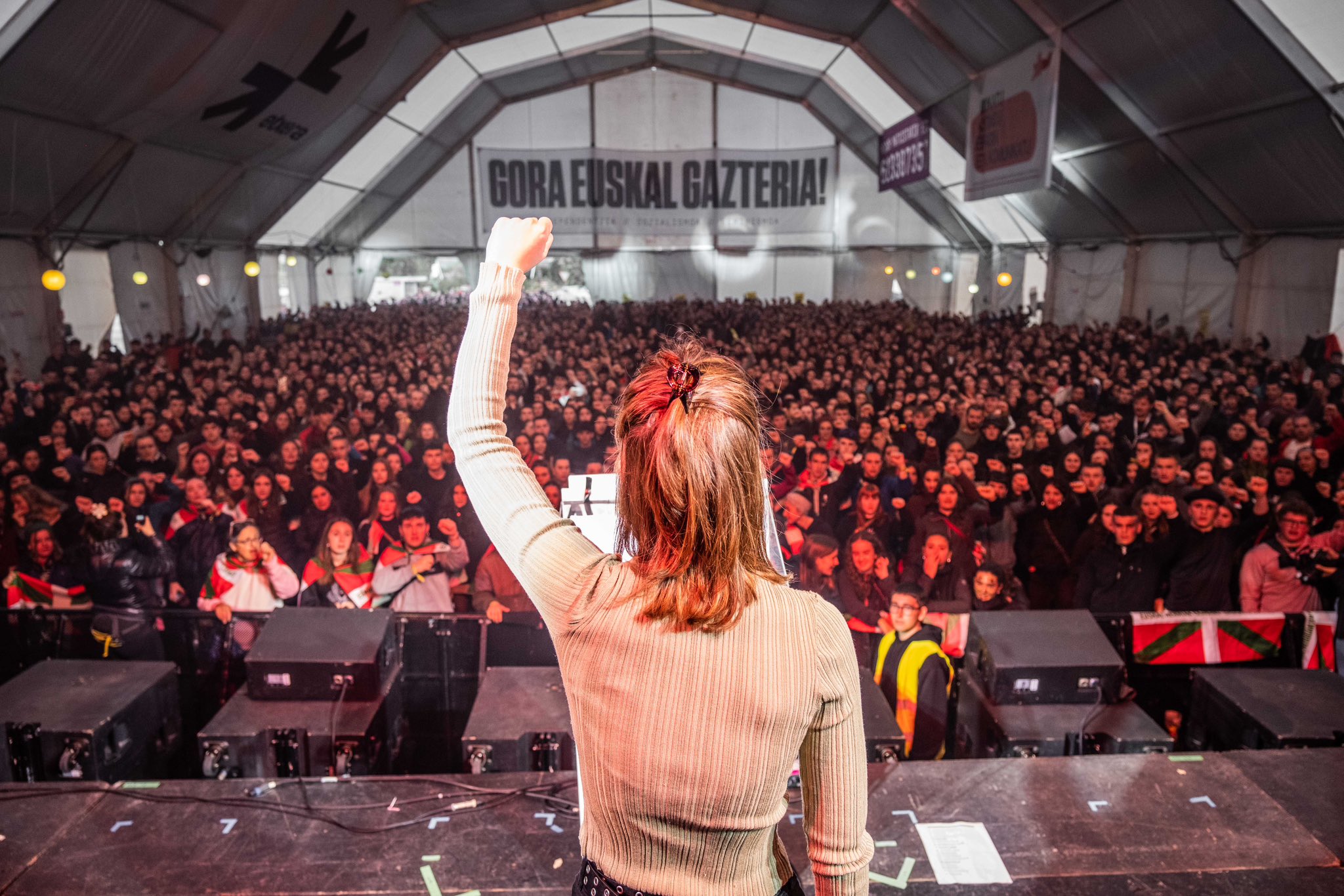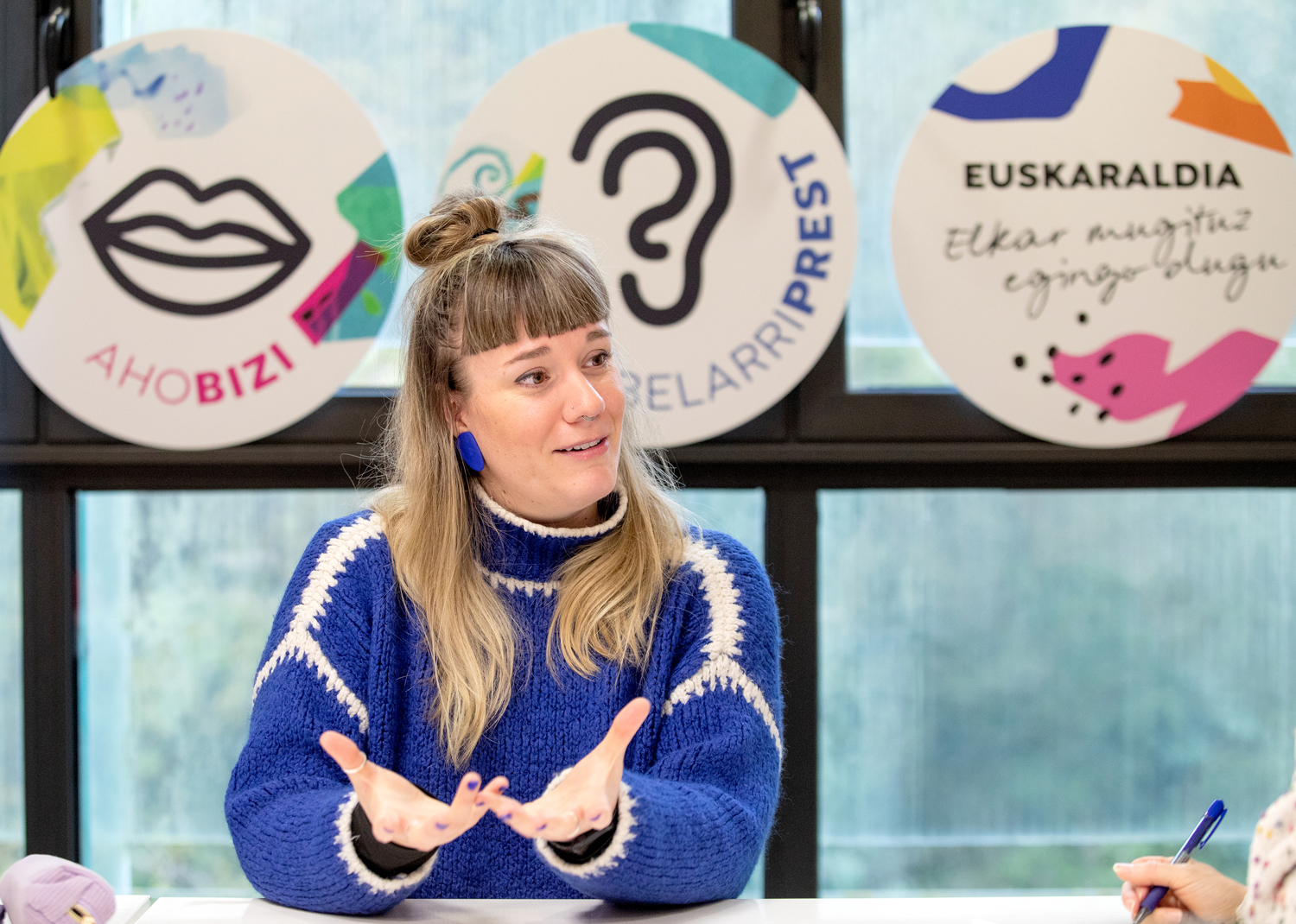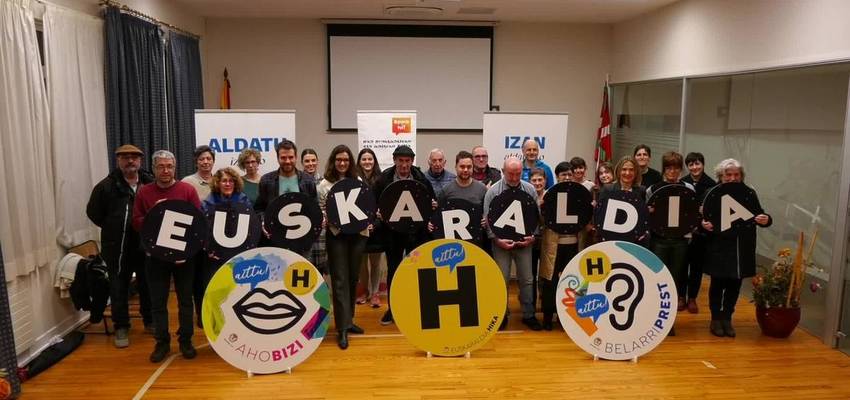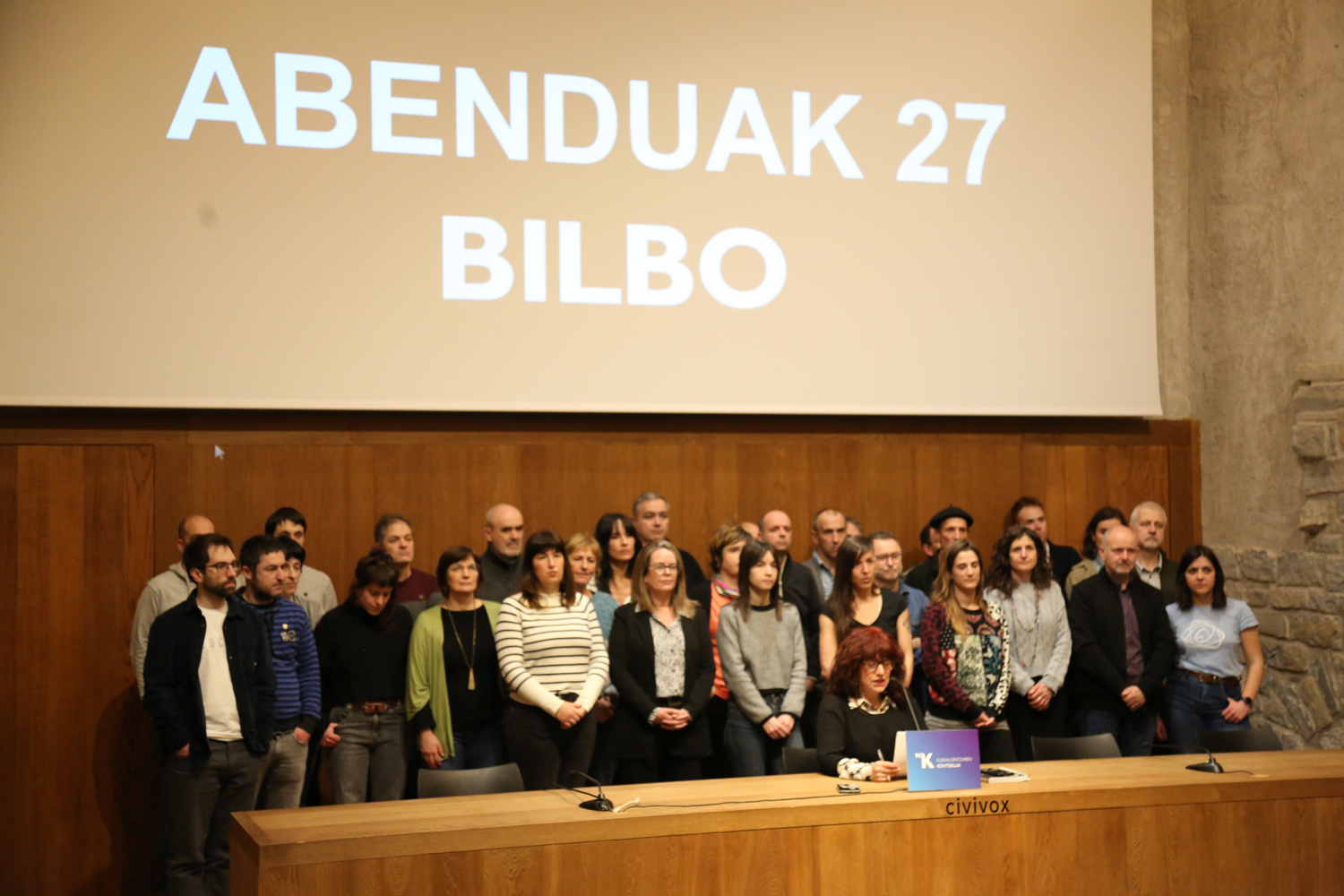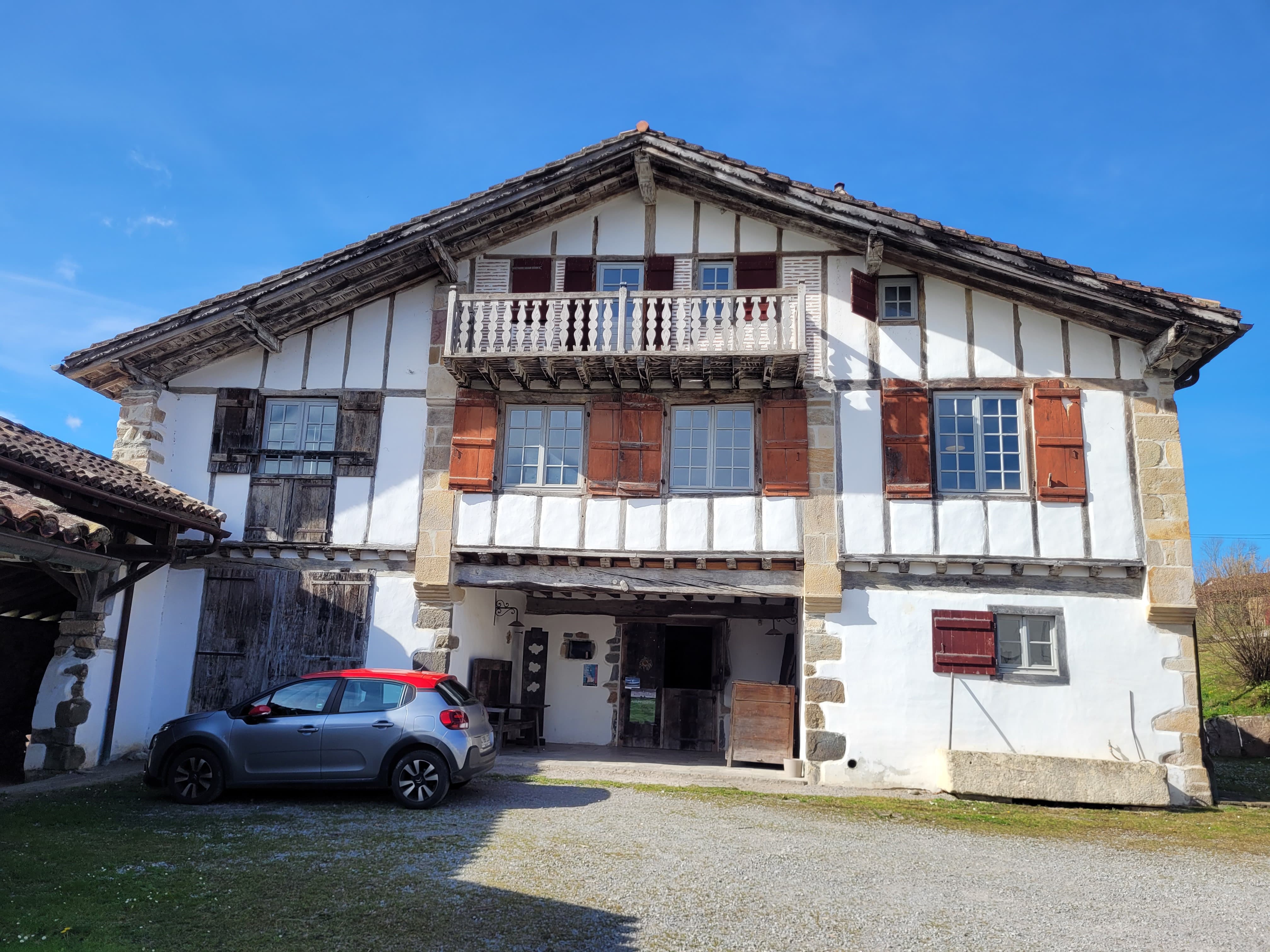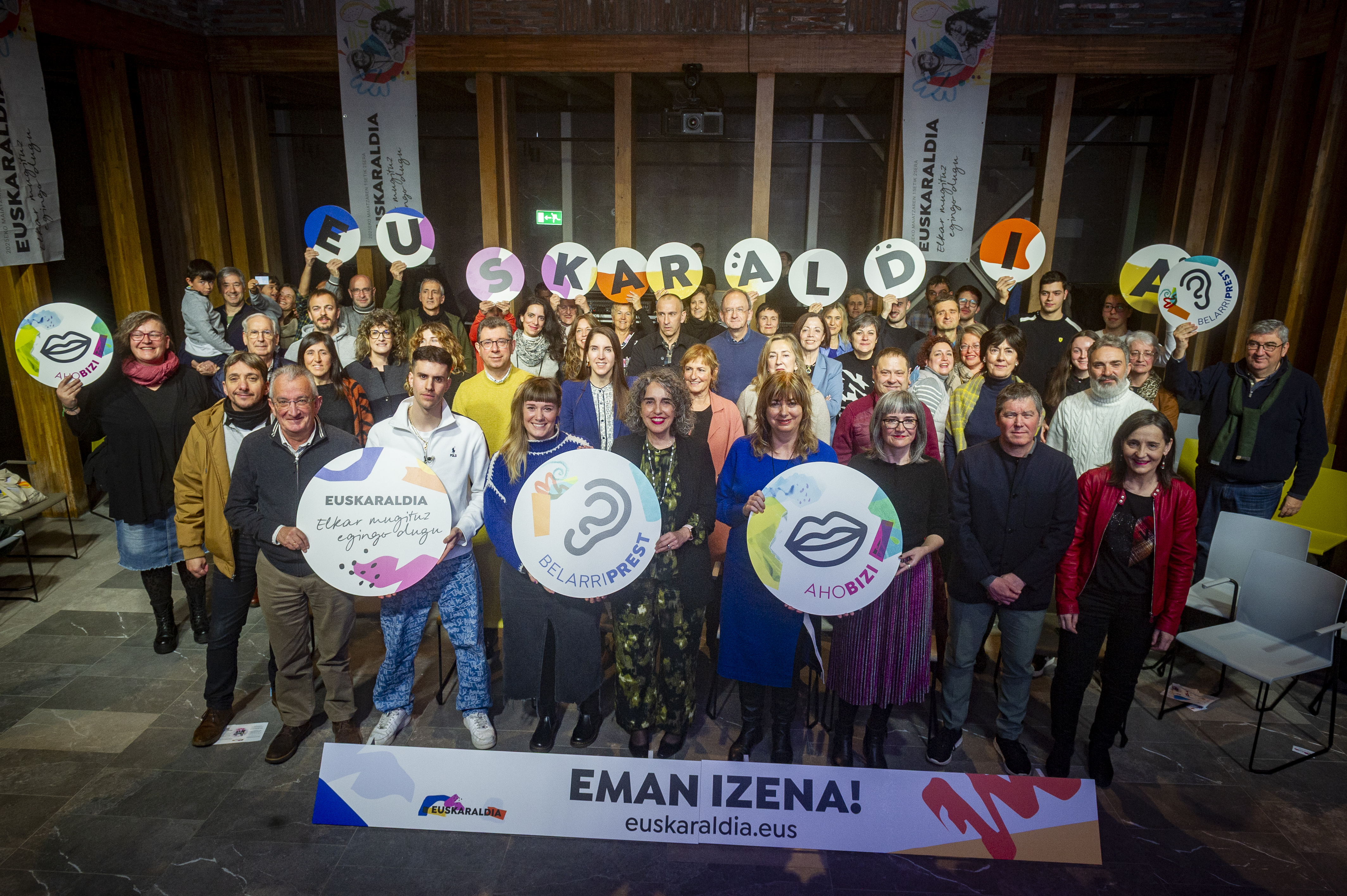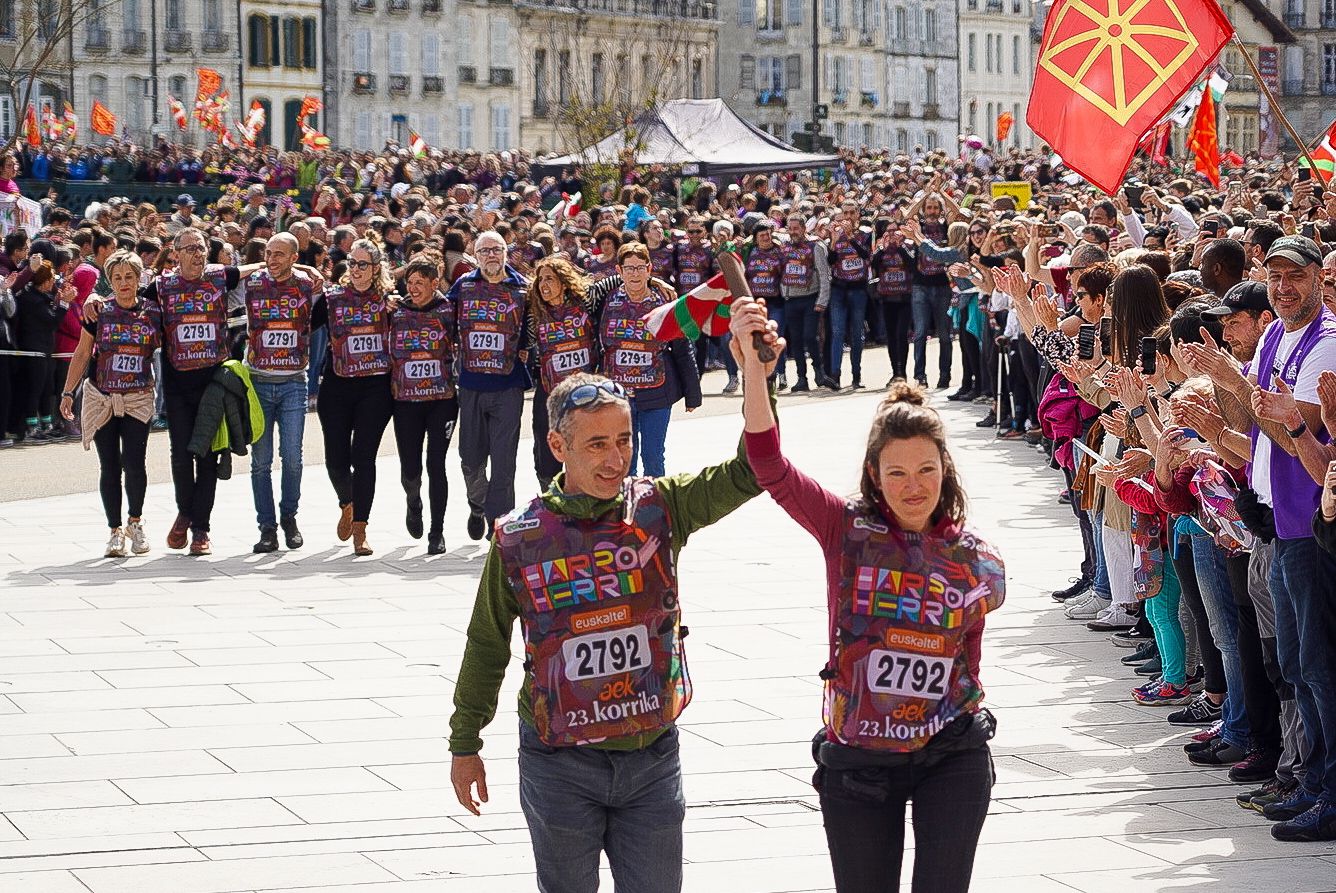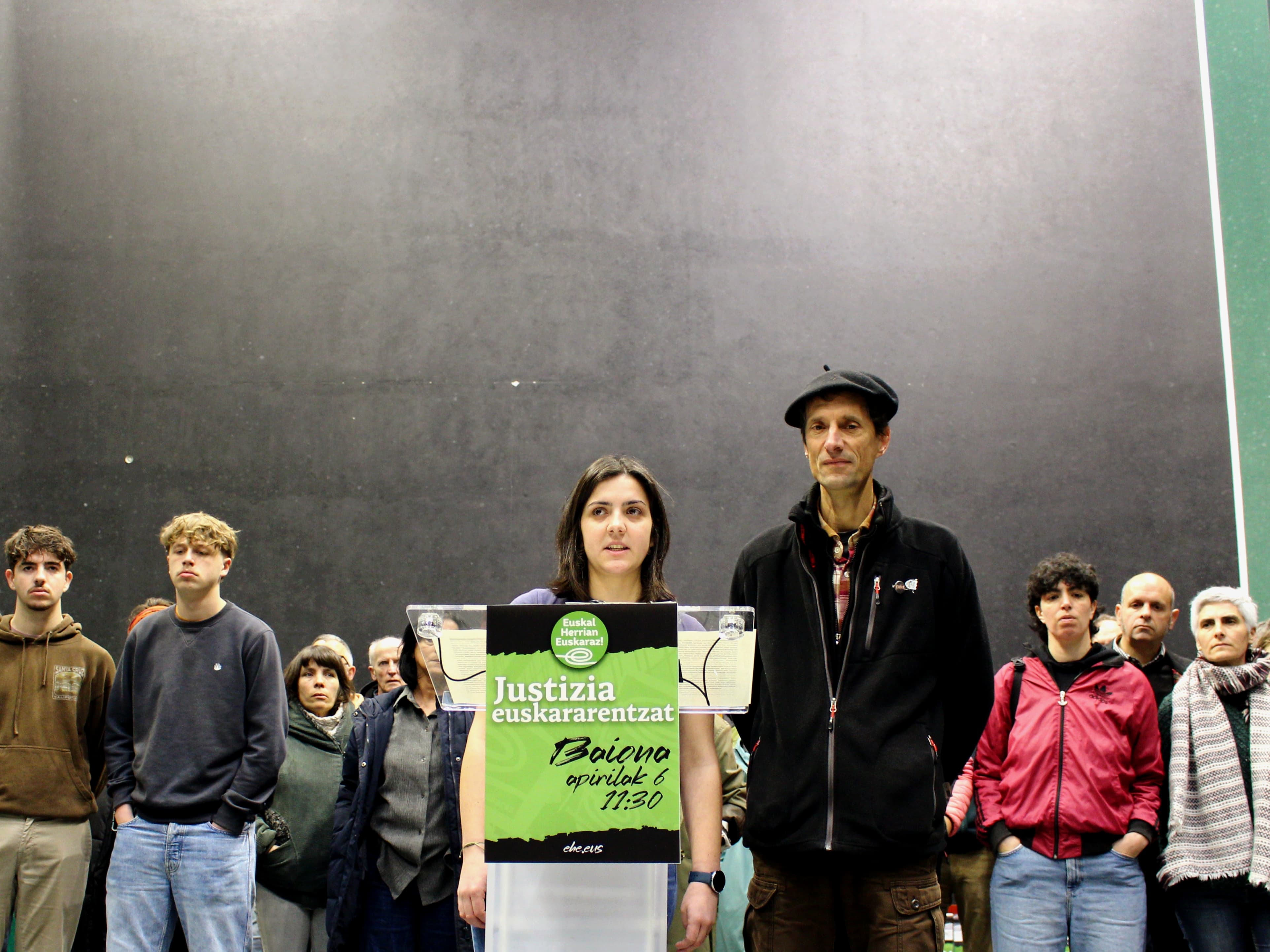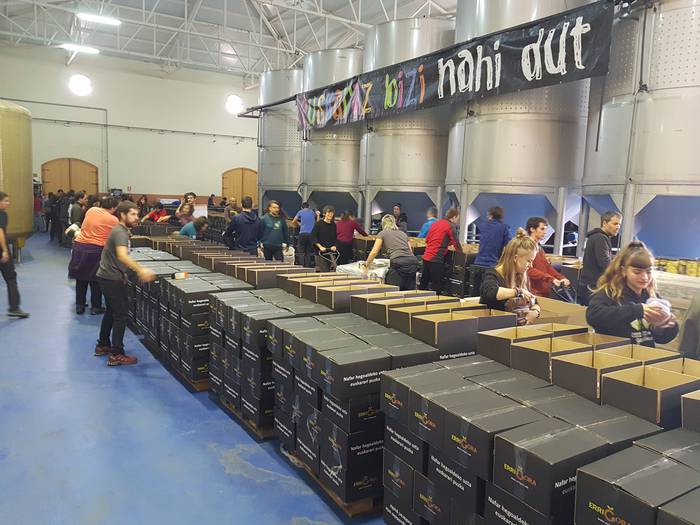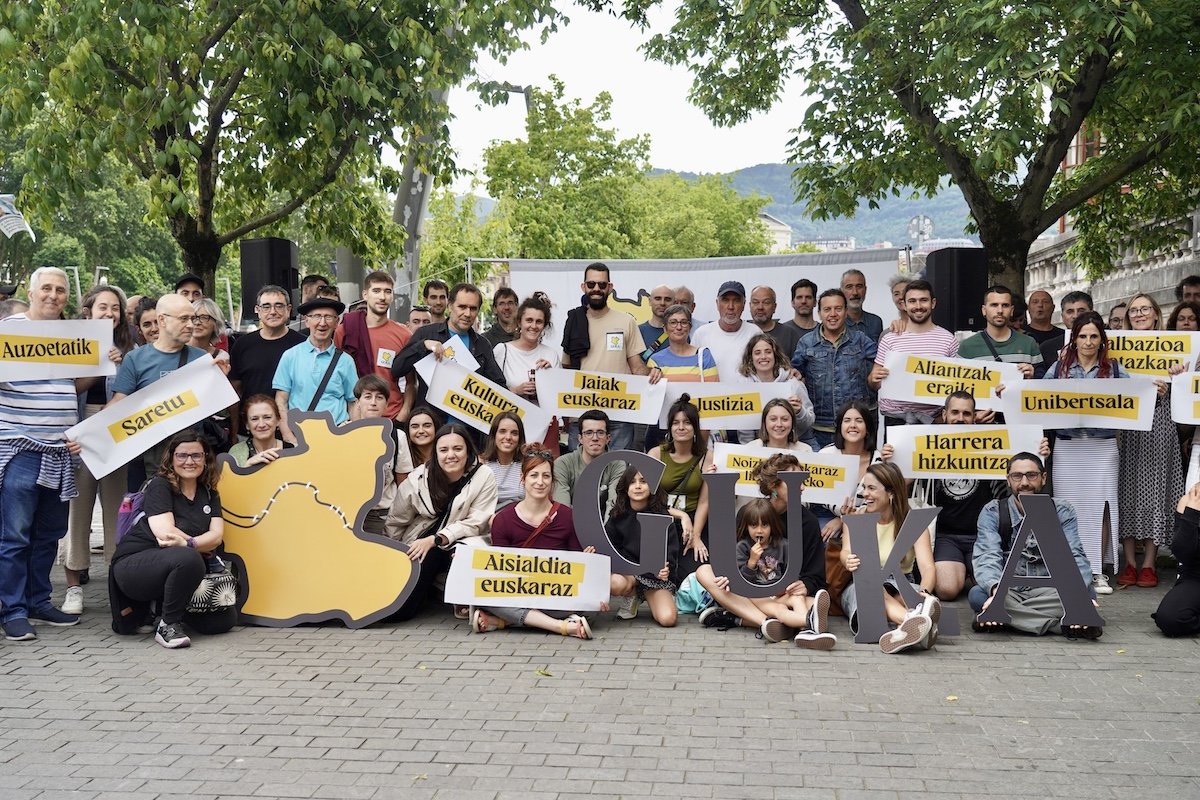Vitoria proud of the city

Two weeks ago we talked about the difficulties we have in using Euskera in Gasteiz. Today I want to explain the other side of the coin, the miracle of Vitoria. Linguists say it's almost impossible to resuscitate a language if it's been represented. It is true that the Basque country has never disappeared, but forty years ago there were few who knew Basque. Today, on the contrary, at the beginning of the 21st century, according to the latest socio-linguistic surveys, Vitoria-Gasteiz is the place where the use of the Basque country has increased the most. How is that possible?
The ikastola of my daughters, Arantzazu, turns 40 this year. This birthday means a lot. I have the feeling in the city that those years have been decisive. I was not here 40 years ago, I was a little girl from Barcelona when my mother decided to speak Catalan with me, although at my grandparents' house she spoke Spanish. At that time, here in the neighborhoods of Vitoria-Gasteiz, some parents wanted to guarantee the right to study in Basque. Our parents lived during the long night of Franco in youth and, upon the arrival of the Transition, they tried to build their worthy people from there and from here.
"Vitoria-Gasteiz is the largest city in the Basque Country, about 40 years ago, because some parents were determined to make Euskera the language of their children"
In Álava, in 1977, the Council of Álava, probably thanks to the popular impetus, started to weave a school network to learn Basque. On the one hand, it signed agreements with the ikastolas created in the 1960s; on the other, public ikastolas such as Arantzazu, Toki Eder, Durana or Odón de Apraiz were created... In all these specific places the seeds of the Basque Peak in Vitoria were sown. That is, today Gasteiz is the city that has experienced the greatest boom in Euskera, since some 40 years ago some Basque parents had the determination to make Euskera the language of their children.
It has been a model, contagious network, and today most children learn in model D in Vitoria. This Euskaldunization network did not stop during the Transition. For example, in 2004, Ramón Bajo, the Casco Viejo school, guaranteed model D and became a cohesive space for the neighborhood. This year, the Judimendi School, located in a neighborhood of great vitality and with the same name, has made the leap to model D and we wish you the best luck, that this project will be joined by many friends, for us lovers of Euskera, who are courageous and decisive decisions.
The situation of the Basque in Vitoria-Gasteiz is not easy, and the use of the Basque is still too small, but I have not seen anywhere, especially among the people of my generation, a commitment to the Basque that exists here. Commitment of your parents to the wager, the gift. Not bad that all of this gives us strength, because there is still a lot of work and work, and the miracle is in the head. Intergenerational transmission must be ensured and it will not be easy. Because in Vitoria children use little Euskera, and if it is not used, and the language is not transmitted to the next generation, then the effort made during these years will remain. That is why we are concerned, and at the moment we cannot yet call a miracle, but we are on the way and will come.
Bilbon eginiko aurkezpenean iragarri dute ekitaldia, euskarari "arnas berri bat emateko eta behar duen indarraldia gorpuzten hasteko" lehen urratsa izango dela nabarmenduta. Euskaltzale guztiei, baina, oro har, "justizia sozialean eta gizarte kohesioan aurre... [+]
Euskaraldiaren hamaikakoa aurkeztu dute Nafarroan: Julio Soto bertsolaria, Edurne Pena aktorea, Julen Goldarazena musikaria (Flakofonki), Claudia Rodriguez Goxuan Saltsan taldeko abeslaria, Eneko Garcia (Albina Stardust), Yasmine Khris Maansri itzultzaile eta kazetaria,... [+]
Euskalgintzak Senpereko Larraldea etxea faltan botako du. Uda gabe, Bertsularien lagunak, bertan gelditzen den azken elkarteak, lekuz aldatuko du eta etxea hetsiko dute. Euskararen, euskal kulturaren eta arteen ohantzea izan da Larraldea, urte luzetan Andoni Iturrioz mezenasak... [+]
Horra Libération egunkariak berriki argitaratu duen idazkia:
“Bayonne” bukatu da, Libérationek “Baiona” idatziko du
Hiri baten izenaren erabilpena ohiturazkoa delarik, egunkari batean izen horren erabilpena aldatzea zaila da. Alta, irakurleen... [+]
Gasteizen egin duten ekitaldian ireki dute izen ematea, laugarren edizioa hasteko bi hilabete falta direla. Erakundeetako ordezkariak, herritarrak eta entitateetako kideak agertu dira, besteak beste. Euskaraldiaren koordinazioa Euskal Herriko erakunde publikoen eta Taupa... [+]
Korrikaren "bihotza eta burua" erakutsiko ditu dokumentalak. Proiektua gauzatzeko, herritarren babesa "ezinbestekoa" izango dela adierazi dute AEK eta Mirokutana ekoiztetxeak, eta apirilaren 25era bitartean crowdfunding kanpaina bat abiatuko dute jalgihadi.eus... [+]
25 bat eragilek adierazi diete elkartasuna apirilaren 11n Baionako auzitegian epaituko dituzten Intza Gurrutxaga eta Gorka Torre Euskal Herrian Euskaraz taldeko kideei. Egun batzuk lehenago, apirilaren 6an Baionan eginen den manifestazioan parte hartzeko deia ere luzatu dute.
Martxoaren 10etik 26ra izango da udaberriko kanpaina. 'Beste modura, denona de onura' lelopean arituko dira gertuko ekoizpena, banaketa eta kontsumoa babestu eta sustatzeko, ager zonaldean euskara hauspotzen duten bitartean. Apirila amaieratik aurrera jasoko dira... [+]
Otsailaren 28an Hendaian eman dio hasiera kanpainari Herri Urratsek. Euskararen transmisioa bermatzen duen Seaska babestea da helburua.
Gukak “Bilbo erdalduntzen duen makina” ikusaraziko du kanpainaren bidez. 24 orduz martxan dagoen makina salatuko dute, eta berori “elikatu eta olioztatzen dutenek” ardurak hartzea eskatuko dute. Euskararen aldeko mekanismoak aktibatzea aldarrikatuko dute.
Hamahiru ZirHika kide batu dira hitanoaren erabilera aldarrikatzeko eta antolakundearen ekintzen berri emateko. Azalpenak Badihardugu elkarteko Idoia Etxeberria eta Galtzaundiko Uxoa Elustondok egin dituzte. Horiei, Andoni Egaña eta Amaia Agirre bertsolariak eta... [+]








